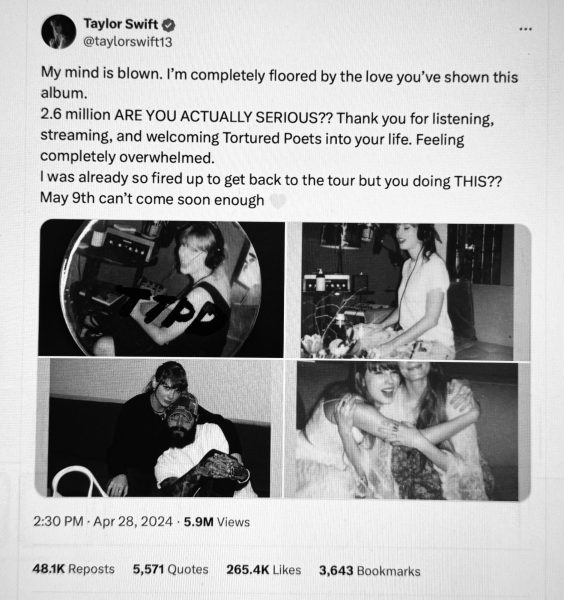VIEW: Sincerity
To communicate with another is to learn from yourself.
When you have one chance to say the right thing in the best way, what will it be?
This is not only the question facing newspaper editors squinting at computer screens as the deadline to print approaches.
It is what anyone could ask before typing an email, greeting a friend or begging forgiveness, since, as the wise in the East have discovered, “the subject of communication is really the same subject of life.”
There is a perspective that defines the self as undefinable and communication — whether between two people or two billion people — as the expression of a singular form.
The idea doesn’t truly say anything, but it does mean this: every word you say is sacred.
It’s hard to know what to say when you realize that.
It’s even harder when you know the people listening are too.
Or is it?
As soon as we recognize ourselves in the other, we develop a respect for sincerity and grow to feel fearless. I just never imagined it would feel like this.
I thought a fearless person had to see something dangerous, feel their heartbeats quicken and choose to dive in headfirst anyway — to risk their legacies for a chance at recognition.
But a truly fearless person does not consider a thing dangerous. Being afraid does not come to mind.
It is with a similar instinct we find ourselves tending to speak sincerely and recoil from the uncomfortable pursuit of persuasion — there simply is no better way when you know the person listening to you is you, too.
To be sincere without trying to be gives one an advantage in communicating, because from the very beginning, you’ve discovered something many have not: the ability to communicate sincerely.
And this, to our surprise, has proven the most effective way to communicate. After all, how hard is it to be yourself?
But for many in our culture, saying what you truly mean isn’t easier than saying what others expect of you — though far more often, it’s the much better thing to say.
But to practice at being sincere is a lot like forcing yourself to be in love with someone. By telling ourselves we must do that which will only work if done voluntarily, we automatically have other interests at heart — the goal of retelling the most genuine story has fallen second to our obsession of pleasing ourselves.
As light requires darkness to be understood, as shape is inseparable from form, and as white implies black: speaking “goeswith” listening.
And whether we speak or whether we listen is entirely up to us. But you can’t have one without the other.
And so we speak, with the sincerity we owe ourselves.
By Will Beaton and Larry Philbin







